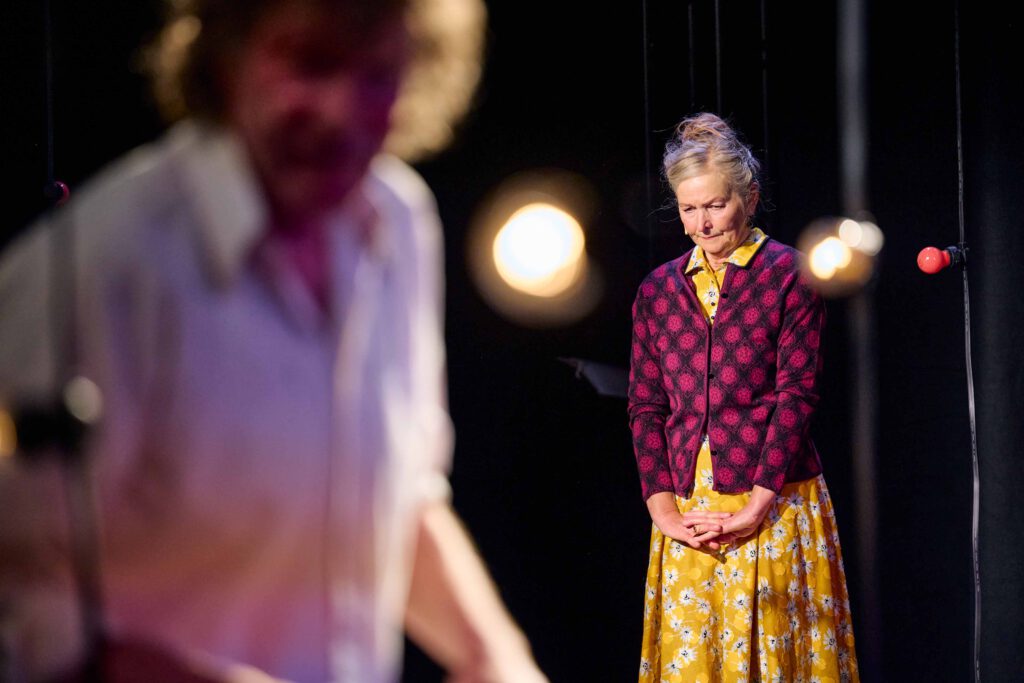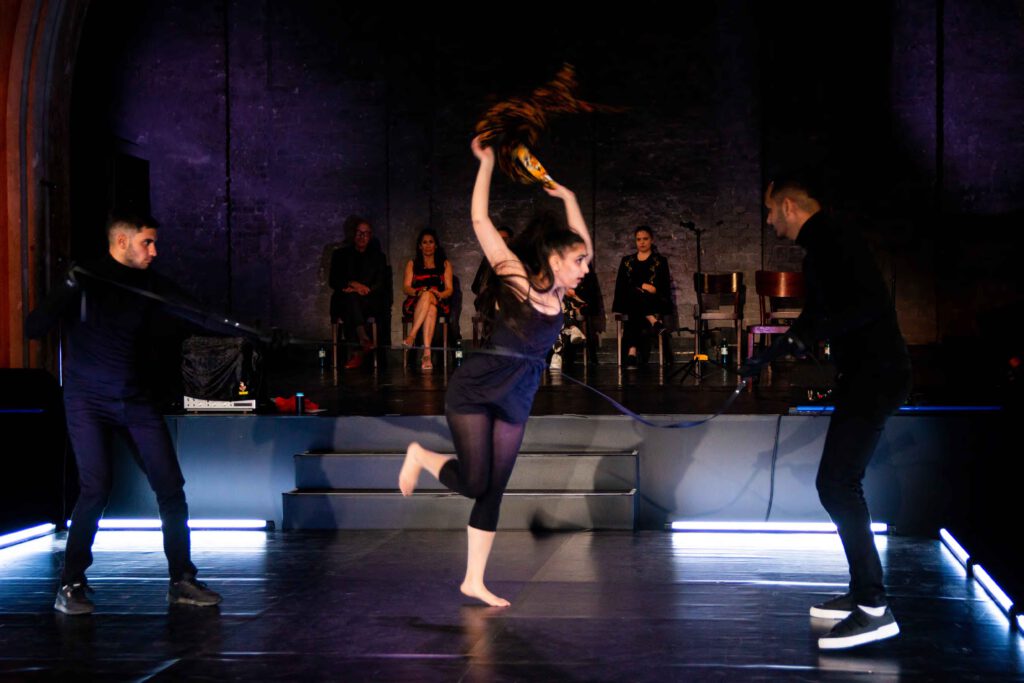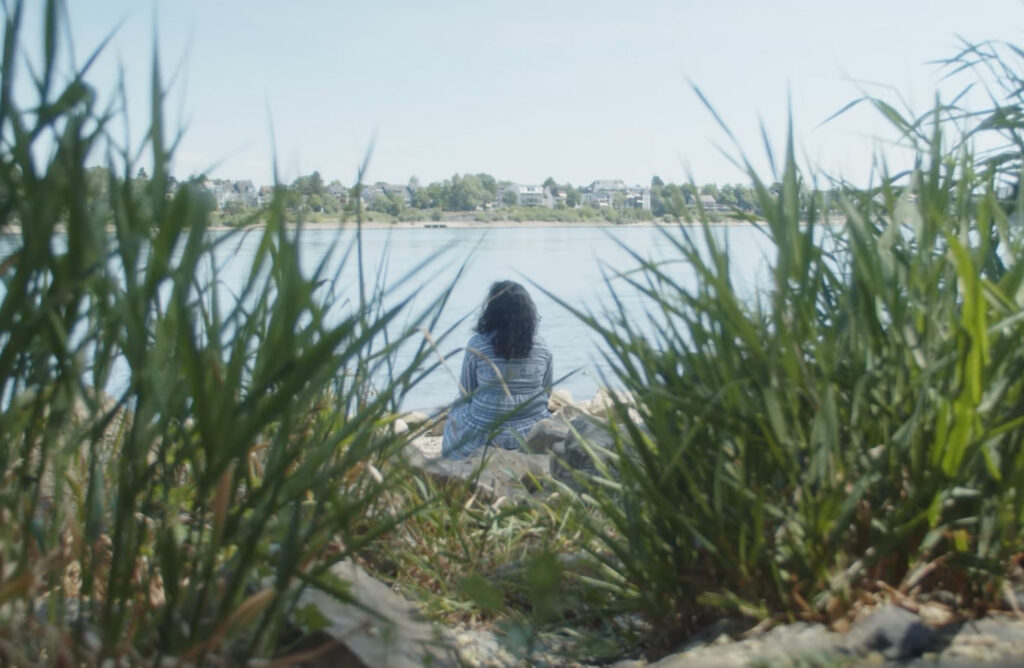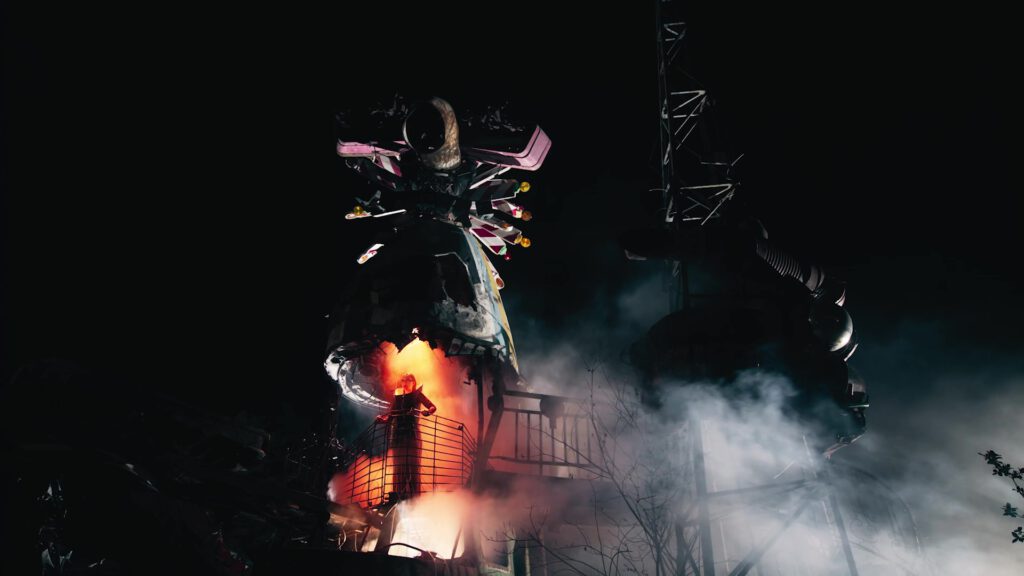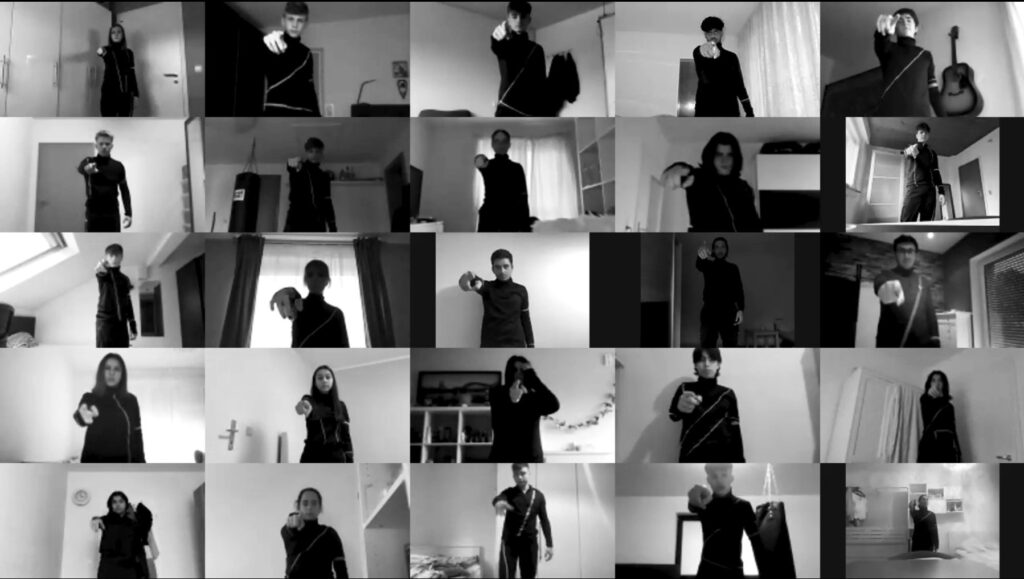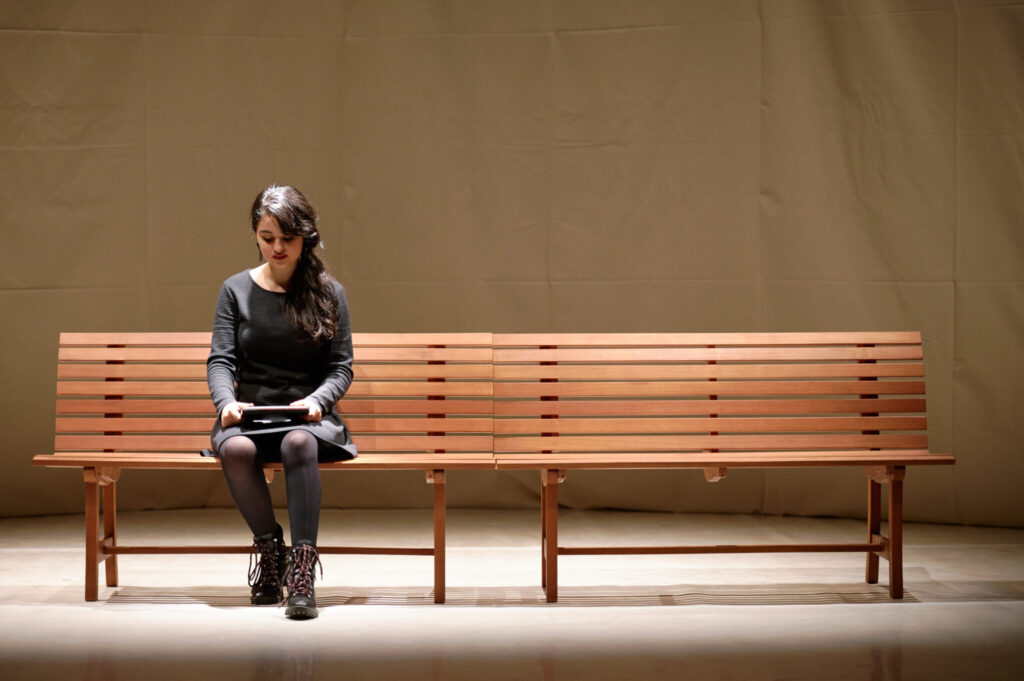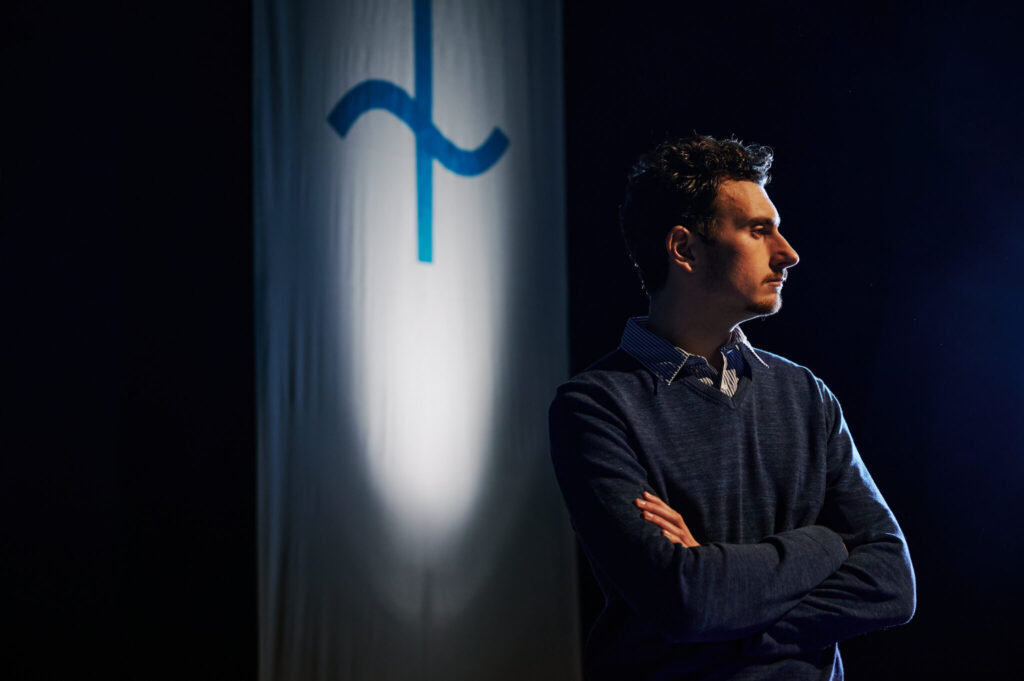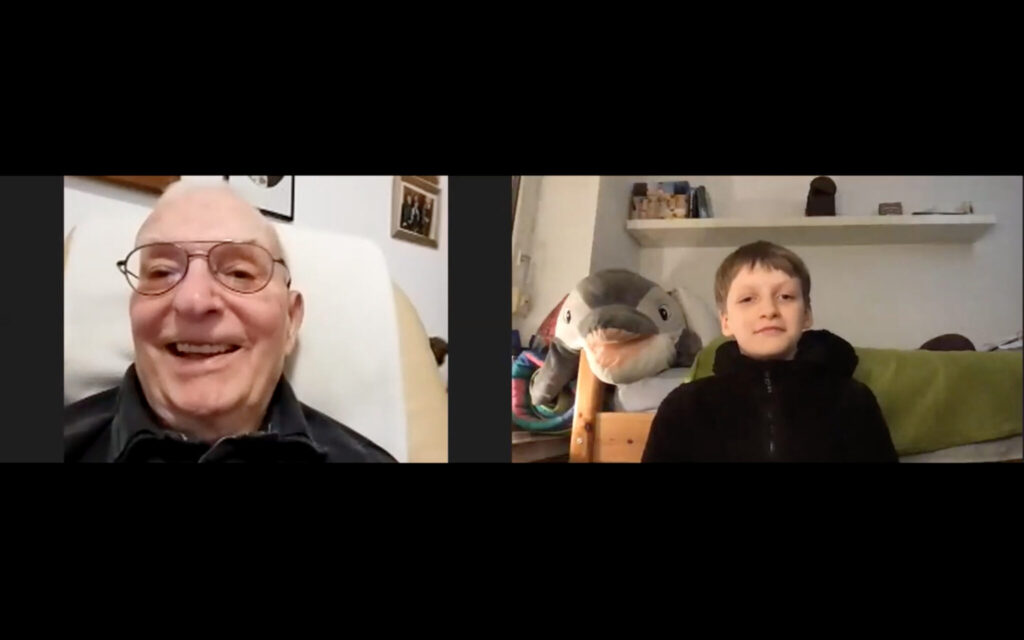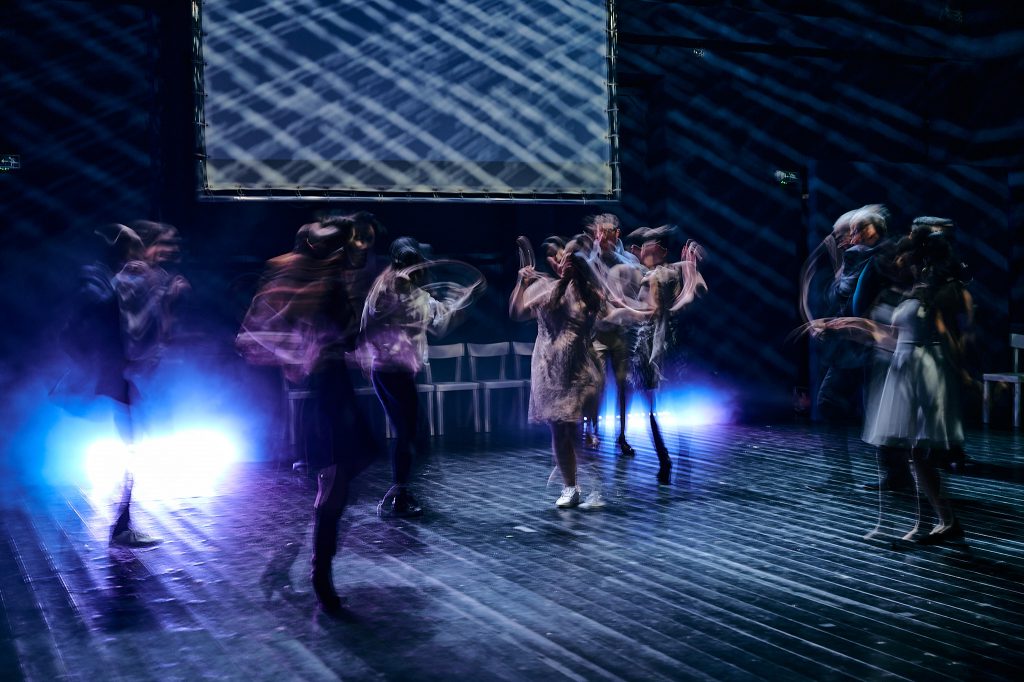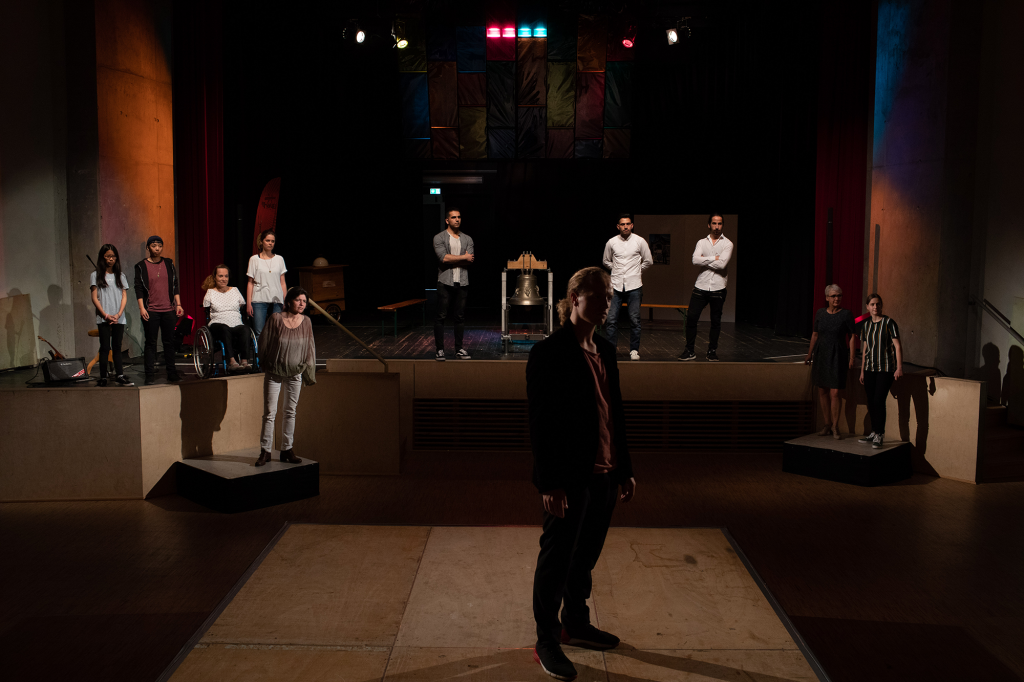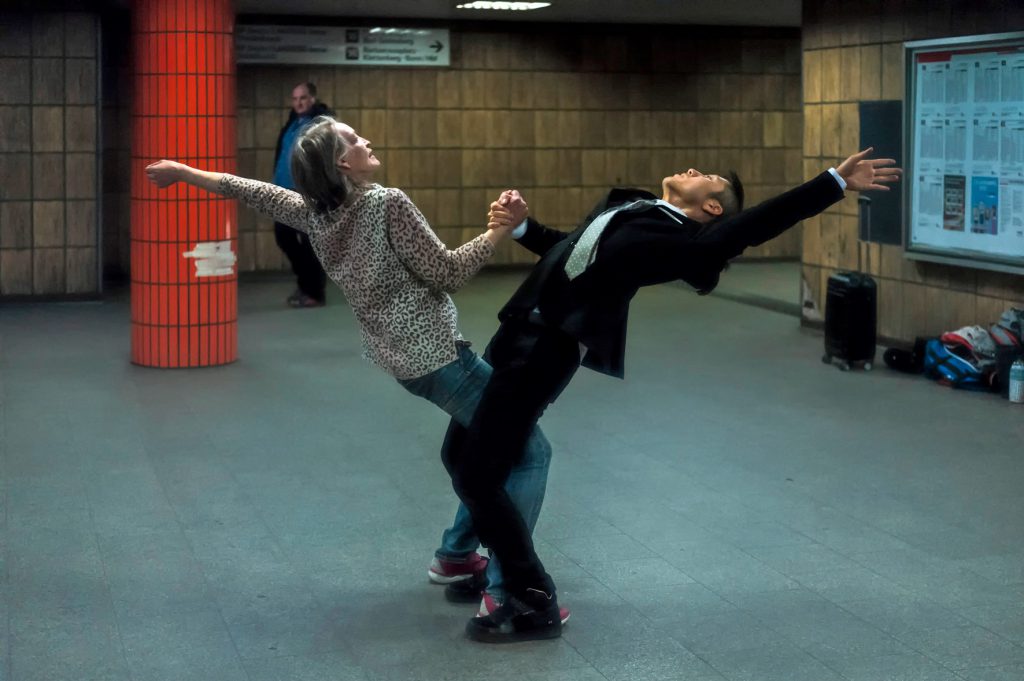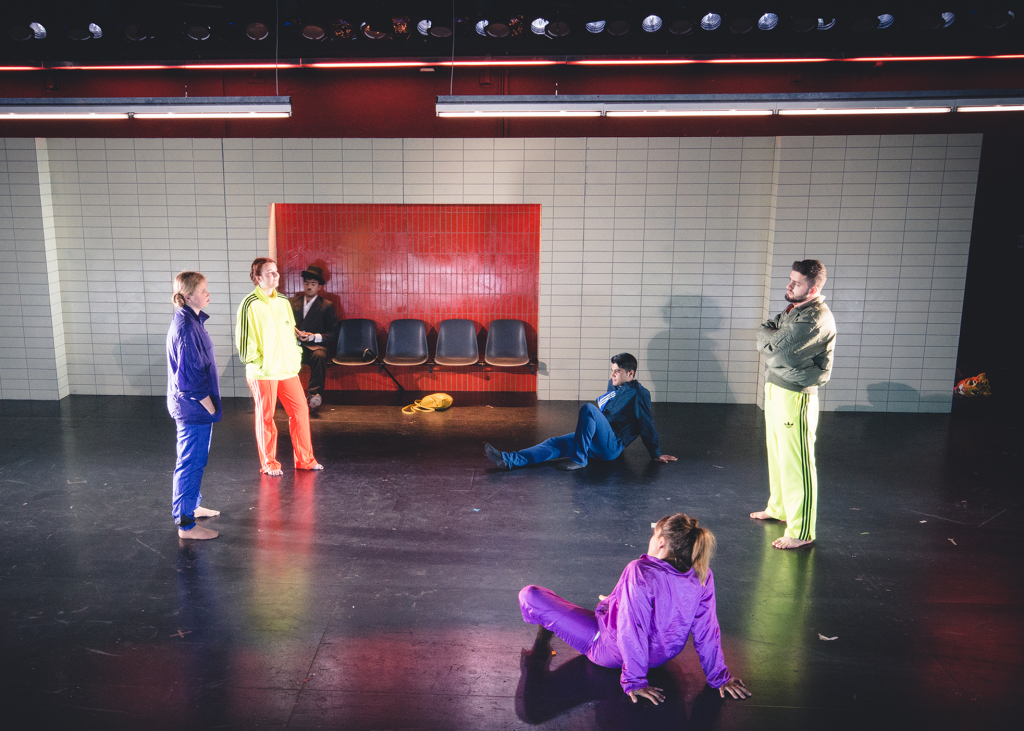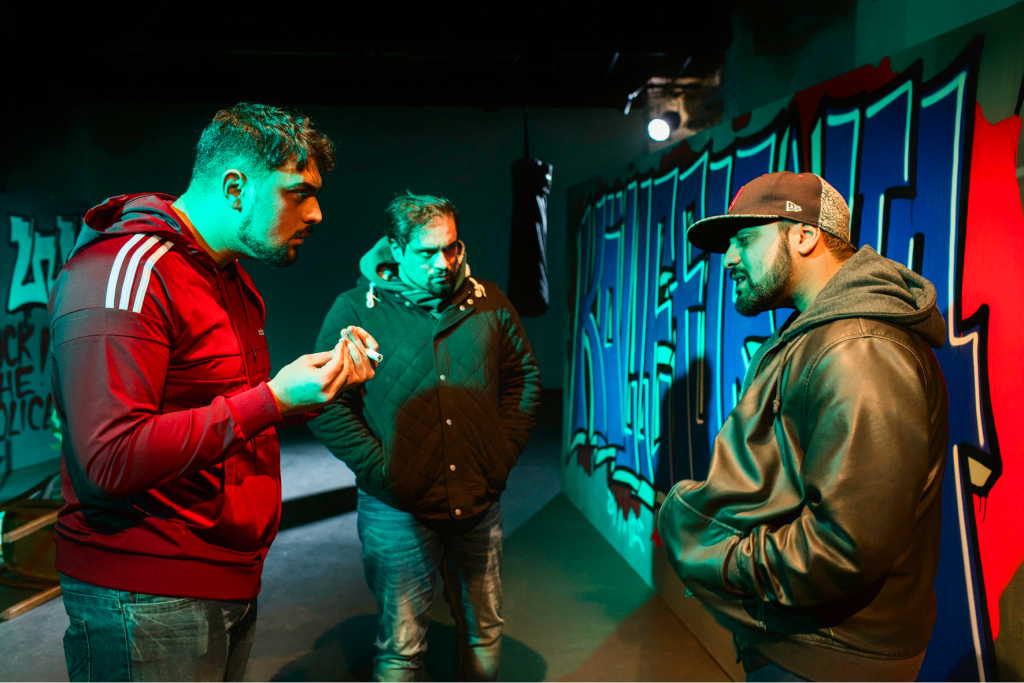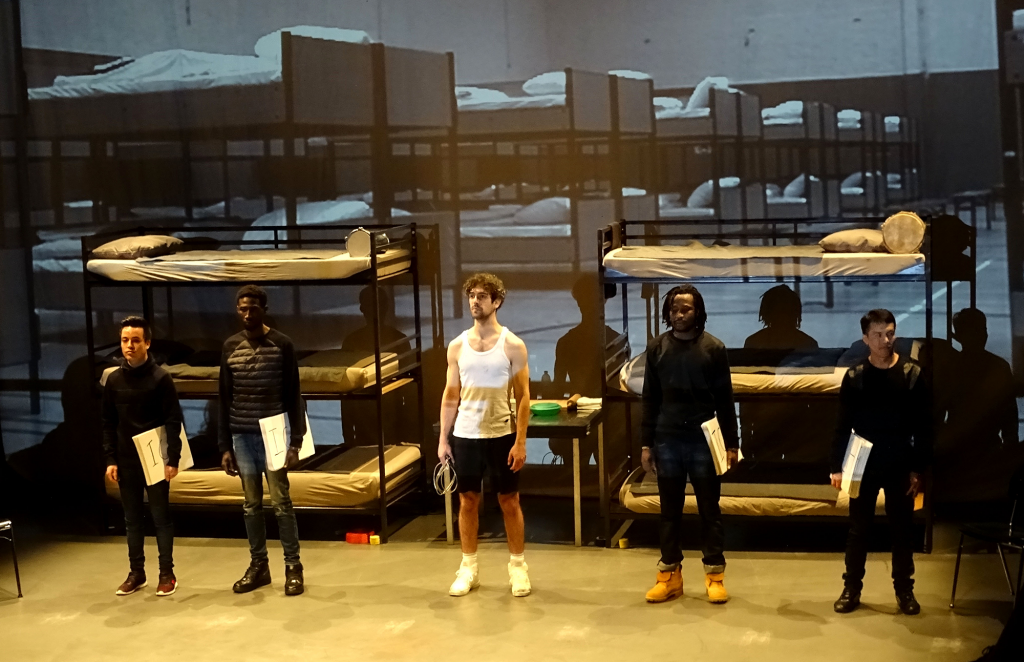PREMIERE — 06.07.2022
Carnival in the Third Reich. A carnival speaker enters the stage. It is the popular Karl Küpper. The National Socialists have forbidden him to speak – he would prefer to disappear completely, the Gestapo henchmen are already standing by. But “d’r Verdötschte” doesn’t let himself be beaten: he sits down on the stage, raises his arm in the obligatory Hitler salute and then just says: “Eß et am rähne…”? He clenches his hand into a fist, the greeting of the communists: “Nä, mer han esu en Wedder”! This is an unprecedented provocation against the Nazis.
PREMIERE — 23.06.2022
Friend or foe? Security or danger? Individual or prejudice? – We make decisions in a flash in our everyday lives. What once upon a time made sense from an evolutionary point of view, primarily serves existing clichés today.. And Sinti:zze and Rom:nja feel this every day: they are supposed to be musical nomads or spirited dancing strangers. But what if reality deviates from the traditional idea? And what if it doesn’t? Am I musical because it is expected of me? Am I still part of my community if I can’t dance? And what does it mean to belong to one of the most unpopular minorities in Europe AND to the majority society?
PREMIERE — 28.04.2022
A musical-performative theater evening with European Sinti:zze and Rom:nja
What do you see when you see me? What do I see when I look at me? What do I see when I look at you?
Every day, Sinti:zze and Rom:nja move in a world of foreign attributions and prejudices. Numerous clichés and stereotypes are projected onto them from the outside: they are supposed to be music-making nomads and spirited dancers, unattached and free, including romantic campfires in the woods. But what if reality deviates from these cemented images? And what if it doesn’t?
ONLINE — PREMIERE — 19.06.2022
MOSAIC is a citizens’ stage for young and old people with and without migration and refugee experiences from Bonn. Together, we develop a theater project about a socially relevant topic with the participants for one year.
To meet each other again, to get into an exchange and to create a society together that leaves room for dreams and utopias – that was the hope of all of us last year.
In the second year of the project, our participants therefore dealt with their hopes, wishes and demands with regard to living together in our society. With the focus on the social demands on women, a short film was created that questions the existing and presents new ways of living together.
ONLINE & OFFLINE — PREMIERE — 16.09.2021
A group of young people find themselves in a strange, mysterious place. A place without civilization, without adults, without clear rules. What has happened seems unclear, but one thing is certain: there is no escape. Fear, curiosity, helplessness and anger spread. The young people have different goals, each with their own idea of (surviving) life. And yet living together must somehow be possible?! While some are still looking for solutions, the hunt begins for others.
ONLINE — PREMIERE— 15.05.2021
ONE ROOM.
ONE SCREEN.
AND NO DOOR TO THE OUTSIDE.
ONLINE – PREMIERE – 11.04.2021
Facing and mastering challenges, looking for a new beginning – these themes have strongly accompanied us as a society in the past year and largely determined our lives. At the same time, they also formed the centre of the artistic debate in the first project year of MOSAIC.
ONLINE – PREMIERE – 06.03.2021
What future does democracy have?
What will become of Germany? What will happen to our democracy? Do we get rid of ourselves? There finally is an answer to all these questions:
Welcome to the Third Wave. Welcome to the movement. In the movement, we don’t dwell on yesterday, but offer the chance for an alternative future. We show what community really means. We speak out what needs to be said. The Third Wave Movement is inexorably making its way, we are taking everyone with us who wants change. Everyone who is brave enough for the truth.
ONLINE — PREMIERE — 29.11.20
“Now and then I suffer homesickness: I just cannot say what for…”
— Mascha Kaléko
The Curonian Spit? Sylt? Venice? Or simply for the theatre around the corner? Eight people sit in front of their screens, spatially separated from each other, and yet go on a journey together – in their minds.
PREMIERE — 16.01.2020
What does growing up mean these days? Everything has changed, we are freer, more relaxed and can deal with topics like puberty and sexuality in a totally relaxed way. Or can’t we? Are parents today still uncomprehending spoilsports and the children still hormone-controlled monsters?
THE BEAUTIFUL MINDS explores with young fugitives, locals and adults the best and at the same time the worst time of our lives: our spring awakening.
PREMIERE — 06.06.2019
Addiction seeks its own way. Now and then, addicts find comfort and support in faith. But addiction also seeks the meaning of it all. Why am I here? Why do I suffer? Is there any redemption from my suffering? Therefore, addiction and faith have more in common than you might think.
Long-time addicts have developed a play based on the fairy tale THE GIRL WITHOUT HANDS by the Brothers Grimm. The participants’ personal biographies are juxtaposed with the old story of a girl whose father cuts of both of her hands because he made a deal with the devil. Fairy tales usually contain cruel images, but they also often offer consolation and inspiration when it comes to mastering or regaining control over your life. The production …
PREMIERE — 30.05.2019
The ring parable from the play “Nathan the Wise” by Gotthold Ephraim Lessing is a key text of the Enlightenment. In times of technological disruption and fast progessing modernization, one might think that religion and faith no longer play a role. But the opposite is true: the gods are returning and Cologne is their capital. No other German city has as many different religious communities.
PREMIERE — 09.05.2018
DRUGLAND is not a fairytale forest. DRUGLAND is a trouble spot in the heart of Cologne. At the Neumarkt, the conflicts between drug addicts, dealers, residents, shop owners, law enforcement officers and social workers have inscribed themselves in the public space: DRUGLAND is at the same time shopping zone and drug hot spot, long-established residential area and no-go area, symbol of urban impoverishment, consumption and danger zone. With an ensemble of professional actors and people from the various interest groups, the theatre project collects stories and positions of all participants and combines them into one big picture: Who determines the public space? Who shapes its rules? Whose voice is heard and who remains unheard? Who is visible and who is invisible? Who is able to defend himself, who is powerless?
Premiere — 14.06.2017
Is an integrated society possible? What conditions and circumstances make it possible to become one people? How do young refugees and young locals meet each other and connect?
Together with an ensemble of 15 young people aged 10-18 – refugees who are accommodated in Bonn as well as locals of different origins who have been living here for a long time – we have been examining with these questions over a period of more than six months and have developed a poetic theatre-project based on Peter Handke’s play DIE STUNDE DA WIR NICHTS VONEINANDER WUSSTEN.
This play does not contain a single spoken word but consists of a choreography of short and long encounters between different characters in a fictional place that could be anywhere in Europe…
PREMIERE — 16.03.2016
We have adapted the story to take place in modern-day Germany and in the world of Sinti and Roma – a minority which, according to recent studies, is rejected by the majority of Germans. The continuous racism and social exclusion of Sinti and Roma is particularly relevant in times of Pegida, the mistreatment of asylum seekers by security forces in NRW and the attacks on Charlie Hebdo. Three Roma and five Sinti tell the story of the film LA HAINE juxtaposed with stories about their own personal experiences, their values and dreams for the future. Where do I belong? What is actually the difference between Sinti and Germans? How can I respect the values and traditions of both cultures and belong in both worlds?
PREMIERE — 27.01.2016
This project tells the story of Sinto Johann “Rukeli” Trollmann, who was the German boxing champion in 1933 and later murdered by the Nazis in a concentration camp. After the Nazis had deprived him of his championship title and he was on the run for years, he fought for Germany at the front in World War II. After three years in the Wehrmacht he was deported to the concentration camp where he had to fight show fights with SS officers. During one of these fights, Trollmann knocked out a SS-officer and was beaten to death the next day by the same overseer…

